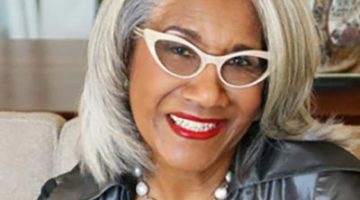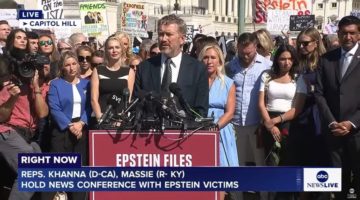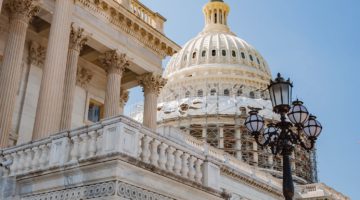 (Florida International University) – Liberty City’s long-stalled 7th Avenue Transit Village will finally get underway with the Miami-Dade County Commissions’ appointment Tuesday of Carlisle Development Group as lead developer.
(Florida International University) – Liberty City’s long-stalled 7th Avenue Transit Village will finally get underway with the Miami-Dade County Commissions’ appointment Tuesday of Carlisle Development Group as lead developer.
The $100 million project will re-develop a prime 2.5-acre site at the intersection of Northwest Seventh Avenue and Dr. Martin Luther King Jr. Boulevard (Northwest 62nd Street).
Appointed with no discussion among the commissioners, Carlisle will be in charge of turning the site into a multi-purpose development that will include a hub for buses, taxis and jitneys, about 200 condominium units with rents pegged to residents’ income, and retail space.
Some Liberty City activists and residents have been demanding that Carlisle promise in writing to hire local workers and provide affordable space to retailers displaced by the project.
The venture has been riddled with problems and an earlier version stalled after allegations that a developer made off with county funds and a scathing report by the county Inspector General.
Miami-Dade County Commissioner Audrey Edmonson, whose district includes Liberty City, revived the project and Carlisle hopes to make it work.
“We have an incredibly widening gap between the rich and poor and we’ve also had an increase in demand for design and community design,” said Matthew Greer, Carlisle’s chief executive officer. “We’ve been dedicated to trying to bring some solutions to that issue.”
Carlisle has a record of constructing high-quality, environmentally responsible projects, more than 70 in all, representing $1.7 billion in costs funded by a combination of federal, state, county, city and private financing.
Promising in a company slogan to be “Socially Responsible, Financially Productive” and “Environmentally Aware,” the firm has been lauded by The Miami Herald and the South Florida Business Journal and Greer was named executive of the year by industry publication Multi-Housing News.
The company’s local developments include Village Allapattah and the Dixie Court Apartments in Fort Lauderdale. It is also constructing the Brownsville Transit Village in Miami-Dade County Real estate veteran Lloyd Boggio started Carlisle in 1997 and the company is now the largest affordable housing developer in Florida and the sixth-largest in the nation.
Boggio sold his interest in the company to Matthew Greer in 2008 but remains a principal in the business.
Bruce Greer, Matthew Greer’s father, was a silent partner when Boggio founded the company; state records do not record whether that remains true. The elder Greer and his son are also associated with a firm called Carlisle Holdings, listed in state records at the same address as Carlisle Development.
The Greer family is well-known on the Miami scene and major contributors to Democratic Party causes.
Father, mother and son have contributed some $250,000 to state and federal Democratic candidates and committees since 2000 and another $15,000 to political action committees, according to campaign finance records.
Two-thirds of their contributions, about $172,000, was in the form of “soft money,” given to party committees and not subject to the limits placed on candidates.
Family contributions to local candidates could not immediately be ascertained.
Bruce Greer is president of the Fairchild Tropical Botanical Garden board of trustees. A graduate of Columbia Law School at Columbia University, he was nominated to be a federal judge by then President Bill Clinton but was never confirmed. He served on the board of Ivax Corp., a Miami drug manufacturer that was acquired by the Israeli firm TevaPharamceuticals.
Evelyn Greer, Bruce’s wife and Matthew’s mother, became Pinecrest’s first mayor when the village incorporated in 1996 and she served as a Miami-Dade County School Board member from 2004 to 2008. Also a graduate of Columbia Law School, she is a member of the school’s board of visitors.
Matthew Greer earned a master’s in real estate development from Columbia, writing his thesis on affordable housing with a focus on Carlisle. He worked at Goldman Sachs Investment Banking in New York and a San Francisco investment firm before joining Carlisle in 2003.
Carlisle has incorporated green technology into its latest projects, installing low-flow toilets, using recycled building materials, planting community gardens and building near transportation facilities.
Real estate experts say part of the firm’s success comes from financial expertise.
“Companies like Carlisle have found their niche because they have the expertise to accumulate the funding to build,” said Hugo Ottolenghi, former real estate editor of the Daily Business Review and a long-time observer of the South Florida market. “This is what they do best.”
Funding for affordable housing is one of the most complex in the development business, coming from federal and county money; tax credits awarded for projects near transit hubs and environmental certification; conventional loans; and the company’s own capital.
“The financing is one of the most complicated parts of these projects because you’re trying to get the project done at a price point that can be affordable to the people who will live there,” Ottolenghi said.
Affordable housing can benefit a local community by attracting commerce and increasing property values, he said, but that can also produce contrary results by raising housing prices beyond what local residents can pay.
Even in an economic downturn that stalled the projects of many development companies and a county profit-margin cap that comes with building affordable housing with public money, Carlisle, a privately-held company, remains profitable and continues to snap up properties.
“I don’t want to work for a for-profit that has no interest in doing good or a non-profit that does not build capital.” Greer said. “You have to have one eye on the bottom line but the other eye on creative things that will benefit the community. We have to have big projects and we have to create jobs.”
The 7th Avenue Transit Village is meant to do just that but still it has run into some community resistance.
Business owners who will be displaced by the purchase of the land have rallied with the Miami Workers Center to demand jobs and financial assistance.
Edmonson said the contract with Carlisle meets those demands and she fears community backlash may discourage other developers from looking into Liberty City property.
Greer, though, is not worried.
“I think the Miami Workers Center has some goals for what they want to see in the community,” Greer said. “And we pride ourselves on trying to work with all stakeholders in a community to try to create a consensus.”
Katie Lawrence may be contacted at klawr005@fiu.edu










No Comment